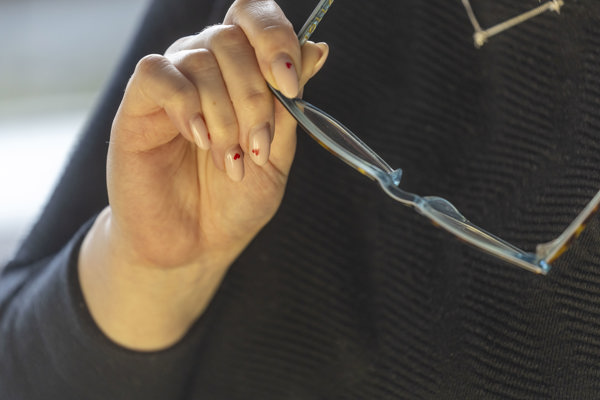Where an individual has been subjected to criminal abuse they may be able to obtain compensation under the Criminal Injuries Compensation Scheme 2012 (the Scheme) which is administered by the Criminal Injuries Compensation Authority (CICA). The potential for this type of compensation may be particularly helpful for an individual who finds them self in circumstances which mean they are unlikely to be able to recover damages in a civil claim in respect of the abuse.
In order to obtain compensation, it is necessary for an individual to meet the requirements set down in Scheme's rules and there are a number of restrictions which may act as a barrier preventing an individual from receiving compensation. The legitimacy of one of these potential barriers, referred to as the 'same roof' rule, has recently been the subject of dispute before the Court of Appeal in England.
The 'same roof' rule
The 'same-roof' rule provides that awards of compensation in respect of criminal injuries sustained before 1 October 1979 will not be made if, at the time of the incident giving rise to the injury, the applicant and the assailant were living together as members of the same family.
The recent challenge to this in the Court of Appeal arose in the case of JT v The First Tier Tribunal and Criminal Injuries Compensation Authority [2018] EWCA Civ 1735.
The claimant had been subjected to sexual abuse by her stepfather when she was a child prior to 1 October 1979. He was subsequently convicted of the abuse. She applied to the Scheme in December 2012 and was told that her application was rejected on the basis of the 'same roof' rule. However a relative of the claimant who had also been abused by the same individual at that time did get compensation because she had not been living as a member of the same family with the assailant and was not barred as a result of the 'same roof' rule.
The claimant initially challenged the decision but her claim was dismissed. Following this, she appealed to the Court of Appeal. The basis of the challenge in the Court of Appeal was that the 'same roof' rule was incompatible with Article 14 on prohibition of discrimination of the European Convention of Human Rights (the Convention). She was supported by the Equality and Human Rights Commission which intervened in the proceedings.
The Court of Appeal's decision
The Court of Appeal was satisfied that the 'same roof' was incompatible with Article 14 of the Convention. Its rationale for this was as follows.
Article 14 does not protect against all discriminatory treatment but rather against discriminatory treatment in the context of rights allowed under the Convention so the applicant needed to point to a Convention right which the discrimination related to. The court was satisfied that a right in relation to a payment from the Scheme could fall within a possession for the purposes of the right under Article 1 of Protocol 1 for persons to have peaceful enjoyment of their possessions. This was a conclusion which the court considered accorded with the Scottish case of MA v Criminal Injuries Compensation Board [2017] CSIH 46 which was also a challenge to the 'same roof' rule where an applicant sought compensation for criminal injuries inflicted on her by her mother on two occasions prior to 1 October 1979 for which her mother was prosecuted for attempted murder and convicted of assault.
Under Article 14, it was necessary for the claimant to point to a status on which the discrimination was based. The court was satisfied that "living as a family member" was a personal status of the kind falling within Article 14.
Lastly, the court considered that no objective and reasonable justification for the difference in treatment of the applicant comparted with others claiming compensation from the same time who had not lived with their assailants had been put forward so the discrimination was not justified.
The court considered that the just and appropriate remedy was to declare that the applicant was not prevented by the 'same roof' rule from receiving an award.
Comments
This case could be seen as another example of a changing approach to compensation claims by those who have suffered childhood sexual abuse. It follows, for example, the relaxing of the time limits within which civil claims can be brought.
The scope of the decision in the JT case appears to remove another barrier to claiming compensation for those who suffered abuse. Although this is an decision of the Court of Appeal in England, the Scheme itself is a UK wide scheme. This approach would be likely to be followed by the Scottish courts.
However it is important to note that the conclusion reached in the JT case is not the same as the conclusion which the Inner House of the Court of Session in Scotland reached in the case of MA v Criminal Injuries Compensation Board mentioned above. In the MA case the court was satisfied that a reasonable and objective justification had been made out in respect of the 'same roof' rule in the previous version of the Scheme. They concluded that, although the rule was discriminatory, it was not manifestly without reasonable foundation so they could not interfere with it and the claimant was prevented from obtaining compensation because of the 'same roof' rule.
The difference between the JT and MA decisions does leave a somewhat uncertain position and indicates that a different approach may be taken for claims of non-sexual abuse. It may be we require some further guidance from the courts or perhaps a review of the Scheme to provide clarity for those whose claims will fall within the scope of the 'same roof' rule.


